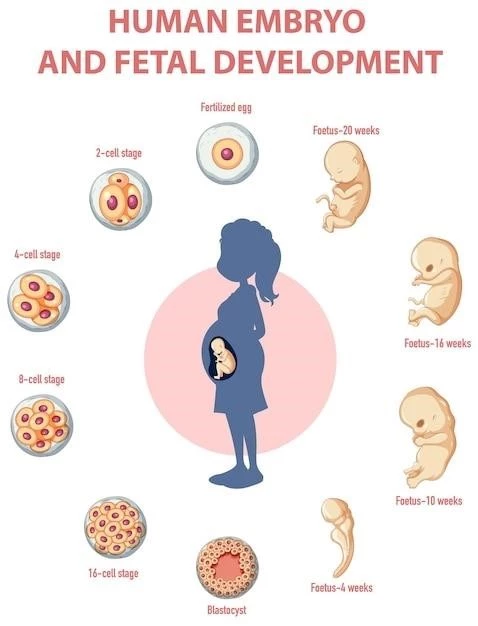Introduction to Neonatal Herpes
Neonatal herpes simplex, or simply neonatal herpes, is a herpes infection in a newborn baby caused by the herpes simplex virus (HSV), mostly as a result of vertical transmission of the HSV from an affected mother to her baby. Types include skin, eye, and mouth herpes (SEM), disseminated herpes (DIS), and central nervous system herpes (CNS). Depending on the type, symptoms vary from a fever to ...
Description and Types of Infections
Neonatal herpes simplex, caused by the herpes simplex virus (HSV), is a potentially serious infection in newborns. The types of infections include skin, eye, and mouth herpes, disseminated herpes, and central nervous system herpes. These infections can vary in severity and necessitate prompt diagnosis and treatment to prevent complications.
Incidence and Risk Factors
Neonatal herpes simplex virus (HSV) infection occurs in approximately 1 out of every 3٫000 to 20٫000 births and is associated with high mortality and morbidity. HSV type 2 is more common than HSV type 1. Transmission typically happens during delivery from an infected maternal genital tract٫ and in some cases٫ transplacental transmission is possible. Mothers with newly acquired genital infection are often responsible for neonatal HSV infections٫ even if they don’t have symptoms at delivery.
Epidemiological Data and Transmission
Neonatal herpes simplex virus (HSV) infection is a severe perinatal infection that affects newborns. Most cases are acquired during delivery, although in utero and postnatal infections can also occur. The risk of transmission from an infected mother to a newborn is higher in women with primary HSV infections. Prompt diagnosis and appropriate management are crucial to prevent severe outcomes in neonates.
Clinical Presentation and Diagnosis
Neonatal herpes simplex virus infection can manifest in various ways, including skin, eye, and mouth involvement, as well as disseminated disease. Prompt diagnosis, often through viral culture or polymerase chain reaction (PCR) testing, is crucial to initiate appropriate treatment and prevent complications. It is important to recognize the signs and symptoms early to ensure timely management.
Manifestations and Diagnostic Methods
Neonatal herpes simplex virus (HSV) infection can present with various manifestations, including localized skin, eye, and mouth involvement, as well as disseminated disease with potential visceral organ issues. Prompt diagnosis is crucial and is typically achieved through viral culture, polymerase chain reaction (PCR) testing, immunofluorescence, or electron microscopy. Identifying the infection early allows for timely initiation of appropriate treatment with high-dose parenteral acyclovir and supportive care to improve outcomes.
Treatment and Management
For neonates with neonatal herpes simplex virus (HSV) infection, immediate treatment is essential to prevent severe complications. Antiviral therapy, such as high-dose parenteral acyclovir, is often used to manage the infection. Supportive care and monitoring for any potential complications are crucial aspects of the management of neonatal herpes. Timely initiation of treatment can significantly impact the outcomes of affected infants.
Antiviral Therapy and Supportive Care
Immediate antiviral therapy with medications like high-dose parenteral acyclovir is crucial in managing neonatal herpes simplex virus (HSV) infection. Alongside antiviral treatment, providing supportive care to the affected neonate is essential for their overall well-being and recovery. Vigorous supportive measures, including IV fluids, respiratory support, nutritional support, and meticulous monitoring, play a key role in ensuring the best possible outcomes for neonates with HSV infection. Early initiation of appropriate treatment coupled with comprehensive supportive care can significantly improve the prognosis for neonates affected by HSV.

Prognosis and Complications
Neonatal herpes simplex virus (HSV) infection can have serious consequences if not promptly diagnosed and treated. Complications may include neurological issues, liver, lung, and kidney damage, as well as significant morbidity and mortality. Timely recognition of symptoms and immediate treatment are essential in improving outcomes for affected infants. Monitoring for potential complications and providing appropriate care can greatly influence the prognosis of neonatal herpes.
Outcomes and Potential Sequelae
Neonatal herpes simplex virus (HSV) infection can lead to severe outcomes, including neurological issues, liver, lung, and kidney damage, and potentially fatal consequences if left untreated. Prompt diagnosis and initiation of appropriate antiviral therapy are crucial in improving outcomes for affected infants. Despite advancements in treatment, some survivors may experience long-term sequelae, emphasizing the importance of early recognition and management of neonatal herpes to mitigate potential complications.
Prevention Strategies
To prevent neonatal herpes simplex virus (HSV) infection, it is crucial to identify and manage maternal HSV infections during pregnancy. Pregnant women with active genital lesions should undergo testing for HSV to assess the risk of transmission to the newborn. Cesarean delivery is recommended for women with a high risk of transmission, especially if active genital lesions are present at term. Avoiding the use of fetal scalp monitors during labor in infants born to mothers with suspected active genital herpes can also help reduce the risk of transmission. Early recognition and appropriate management of maternal HSV infections play a significant role in preventing neonatal herpes.
Preventive Measures and Screening Recommendations
Preventing neonatal herpes simplex virus (HSV) infection involves identifying and managing maternal HSV infections during pregnancy. Women with active genital lesions should undergo testing to assess the risk of transmission to the newborn. Cesarean delivery is recommended for those at high risk, especially with active genital lesions at term. Avoiding fetal scalp monitors during labor for infants born to mothers with suspected active genital herpes can also reduce transmission. Early recognition and management of maternal HSV infections are crucial in preventing neonatal herpes.

Research and Future Directions
Ongoing studies aim to advance the management of neonatal herpes simplex virus (HSV) infection. Research focuses on improving diagnostic methods, efficacy of antiviral therapies, and strategies for preventing transmission. Advancements in understanding the pathophysiology of neonatal herpes and identifying novel treatment approaches are vital for enhancing outcomes and reducing the burden of this serious infection. Stay informed about the latest research to ensure optimal care for neonates at risk of HSV infection.
Ongoing Studies and Advancements in Neonatal Herpes Management
Current research is focused on enhancing the management of neonatal herpes simplex virus (HSV) infection. Studies are investigating improved diagnostic techniques, the efficacy of antiviral therapies, and strategies for reducing transmission. Advances in understanding the pathophysiology of neonatal herpes and the development of novel treatment approaches are crucial for improving outcomes and decreasing the impact of this severe infection. Staying informed about the latest research findings is essential for healthcare professionals involved in the care of neonates at risk of HSV infection.
